
Golden Carers has 1000s of activities and resources for senior care.
Learn how to respond to the assessment of needs with the following 6 case studies extracted from resident care plans.
Related: How to Write a Care Plan
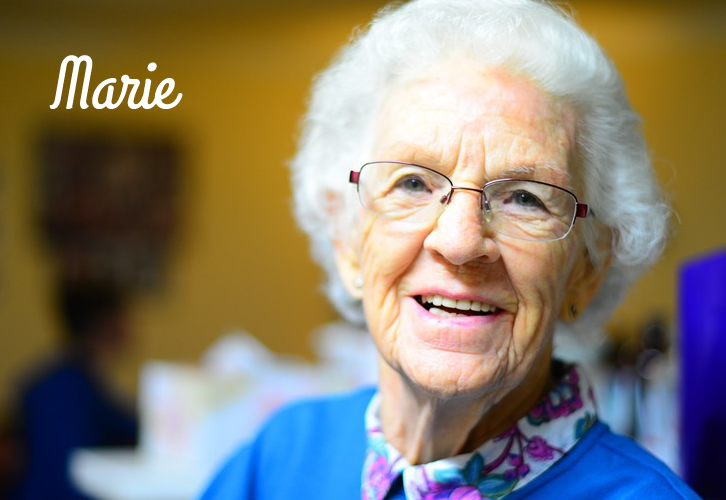
Marie
Marie is a happy and cheerful lady, 82 years of age.
She has difficulty in communicating and becomes frustrated when words don't flow easily for her.
Marie tends to engage in intrusive behaviour throughout the day: snatching things from people's hands, taking hats off people's head and walking away with handbags that don't belong to her.
She used to be actively involved with her Parish Church, assisting with fetes and church decoration.
Marie loves music, especially country music; she used to be a good 'line' dancer.
She is frequently agitated in the afternoons when she insists on 'going home'.
GOALS:
- Promote effective two-way communication.
- Improve intrusive behaviour with diversionary strategies.
- Elicit a positive response from Marie to planned activities.
INTERVENTIONS:
- Staff will communicate with Marie in a calm and relaxed manner, giving her ample time to express herself and offering empathetic encouragement.
- Marie will be engaged in a variety of ADLs (activities of daily living) several times a day to diminish difficult behaviour e.g.
- having hair combed and 'set'
- hanging out clothes to dry
- folding clothes
- wiping and dusting shelves
- tidying out handbag
- washing and drying dishes under supervision
- Staff will spend extra one-on-one time with Marie in the afternoons taking her for a walk and/or engaging her in conversation to distract her from cognitive stress.
- At least 3 times a week, Marie will be involved in an activity she really enjoys; such as dancing with staff to the sound of country music.
- Marie will be actively engaged in 'helping' staff to prepare for Church Services e.g. picking and arranging flowers.
Related:
The Importance of Daily Living Activities for the Elderly
How to Decrease Problem Behaviors
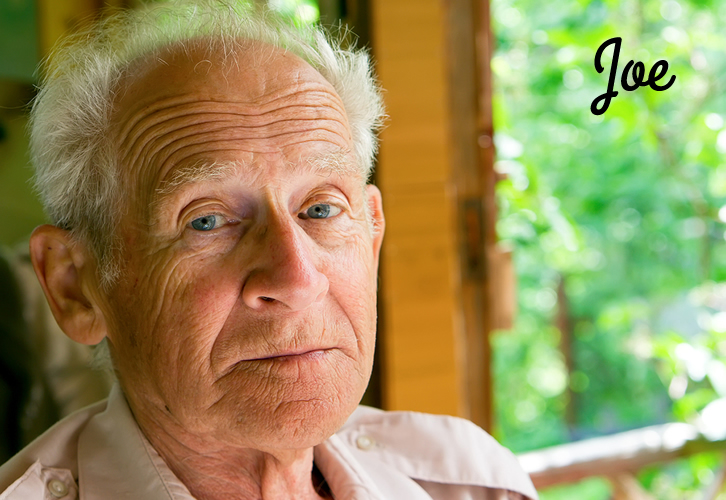
Joe
Joe is 78 years old and has been at our facility for 4 weeks.
Joe has had several heart attacks, is a diabetic and lives with mild multi-infarct dementia.
He is opinionated and intolerant of his fellow residents. He resents being at our facility and does not mix well with the other 'crazy people' as he calls them.
Joe has good eye-sight, is mobile, hears well and has always enjoyed reading novels.
GOALS:
- Joe's anger and negative attitude will improve as he adjusts to life at our facility.
- Staff will source venues to promote Joe's independence.
- Increased self-control and a better outlook on life.
INTERVENTIONS:
- Staff will seat Joe next to other residents with similar cognitive functions on a daily basis to encourage mateship.
- Joe will be offered visits to the local library fortnightly.
- Joe will be encouraged to participate daily in mentally stimulating activities as per the monthly activities calendar. e.g.
- quizzes
- word-searches
- word-games
- poet's corner
- men's discussion group
Related:
Activities for Men
How to Support Mentally Alert Clients in Mixed Group Environments

Agnes
Agnes is a gentle lady 86 years of age with vascular dementia. She has no relatives.
Agnes uses a wheelchair and has poor vision. She is also aphasic but understands what is said to her and responds with gestures and some guttural noises.
She is a chronic hoarder and will take anything she can reach and tuck it inside her cardigan: napkins, toilet paper, salt & pepper shakers, newspapers, cutlery, flowers, etc.
She is very affectionate and charms her fellow residents with smiles and a habit of throwing kisses.
Agnes uses her hands enthusiastically when she hears music.
GOALS:
- Alternative means of communication will be used.
- Agnes will engage in cognitively stimulating activities.
- Diversionary strategies will be sought or created to diminish hoarding.
INTERVENTIONS:
- Staff will communicate with Agnes by observing her body language, gestures and facial expression.
- Agnes will be treated with respect and tolerance regarding hoarding behaviour. Staff will supervise Agnes closely to prevent her taking other residents' belongings.
- Staff will use positive reinforcement for item retrieval i.e.
- Agnes loves chocolates and biscuits and if an item is retrieved she will get a reward.
- Staff will praise and admire Agnes when she behaves cooperatively by returning an item.
- Agnes will be involved in weekly sing-alongs and escorted to concerts.
Related:
Cue Cards for Dementia Care
Communication Strategies for Dementia Care
How to Plan Music Activities for Dementia Care
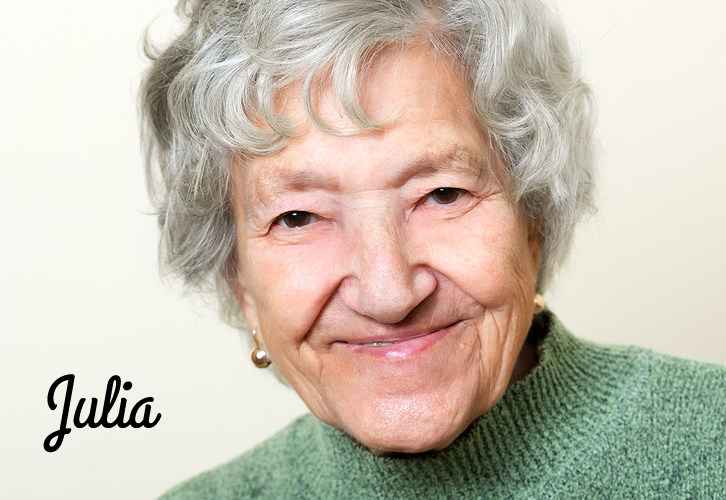
Julia
Julia is 65 years old and has been living with Alzheimer's Disease for the past 4 years. Her family can no longer care for her as she becomes increasingly difficult and disoriented.
She has a very short attention span, mood swings, erratic behaviour and reduced short term memory.
Julia used to be the manager of a large hair salon and was very vain; always well groomed and elegant.
Julia will abscond if given the opportunity.
GOALS:
- Maintaining and supporting current skills.
- Staff will source/create diversionary therapy to diminish erratic behaviour.
- Planned relaxation will be included into Julia's routine.
INTERVENTIONS:
- Julia will be provided with a hairdresser box of her own with items such as bobby pins, combs, brushes, hair rollers, scarves and hair spray.
- Staff will encourage Julia to use her former leadership qualities by guiding her into a 'helping' mode; getting her to help sweep the floor, set tables, stack books on bookshelf, sort out clothes and water the garden.
- Staff will engage Julia in tactile stimulation and relaxation e.g.
- hand massages with a mixture of essential oils
- 'beauty therapy' where staff will clean her face with aromatic creams
- hair grooming etc.
Related:
Behavior Management Strategies for Dementia Care
2 Minute Activities for Dementia Care
Sensory Stimulation for Dementia Care
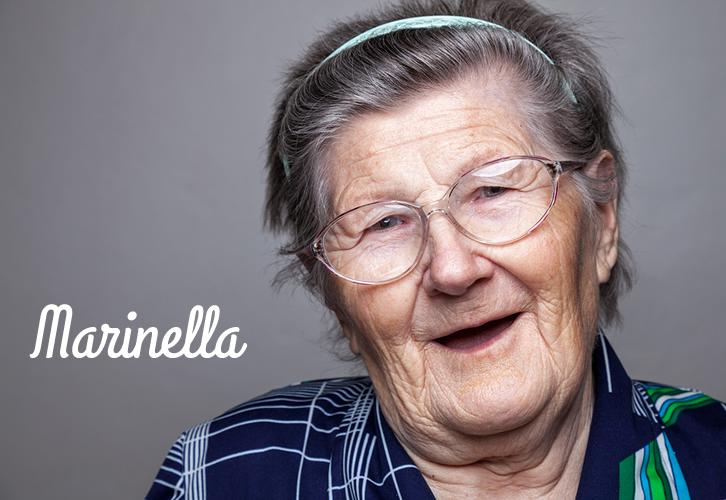
Marinella
Marinella is a 76 year old Italian lady. She has been living in Australia for 43 years.
Marinella has lived a secluded life and her English is limited. She enjoys solitary pursuits and misses her cat.
Her husband passed away and she lived on her own for 2 years until her son noticed that she was not caring for herself as she used to.
GOALS:
- Marinella will accept one-on-one room visits from recreation staff 3 times per week.
- Marinella's solitary pursuits will be respected.
- Effective two-way communication will be achieved.
INTERVENTIONS:
- Staff will visit Marinella and offer her hand/shoulder massages. On these occasions, staff will engage Marinella in conversation offering comfort and reassurance.
- Marinella will be introduced to facility's pet cat and budgie.
- Staff will organize for a volunteer fluent in Italian to visit Marinella weekly.
- Staff will assist Marinella to access radio programs broadcasted in the Italian language.
Related:
Tips For Communicating With English-Second-Language Clients
10 Tips For Supporting Culturally Diverse Clients
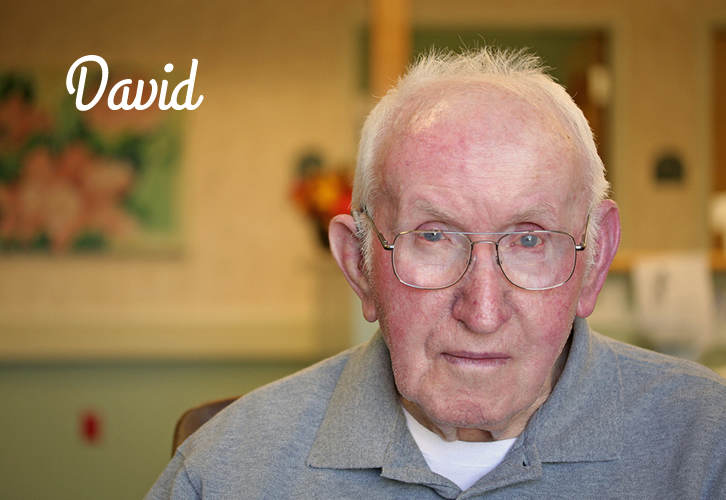
David
David is 74 years old. He has advanced Alzheimer's and communicates through short words, cries and moans.
He has a severe gait but insists on standing up and walking and as a result of this, he has fallen several times.
David experiences occasional seizures and no longer responds to environmental cues.
He has recently stopped feeding himself and needs total support with activities of daily living.
GOALS:
- Improve attention span with diversionary strategies.
- Communications needs will be met.
- Provide sensory stimulation.
INTERVENTIONS:
- David will be provided with dementia specific activities to prevent him from walking away i.e. sensory patchwork, comfort activities, colour sorting, and shape sorting.
- Staff will observe David's body language and facial expressions closely for clues as to what he may need.
- Staff will escort David to the garden when he can no longer stay seated and insists on walking.
- David will be supervised at all times to ensure his wellbeing.
Related:
15 Activities For Late-Stage Alzheimer's Disease
Sundowning: Symptoms, Triggers & Strategies
We'd love to hear your feedback!
Related Activities
Comments Post a Comment
 5th Aug 2022
Activity Director
5th Aug 2022
Activity Director
 6th Aug 2022
6th Aug 2022
 28th Jan 2010
28th Jan 2010
 5th Nov 2009
Diversional Therapist
5th Nov 2009
Diversional Therapist
I would suggest a box of rummage tools at the nurses station for the hoarders and rummagers to enjoy. It might take a bit of work to keep replaceing items but satisfy a need for cleints with dementia to engage in a purposeful activity and
Thank you for your suggestion. Great idea the box of tools for hoarders.
cheers!


 15 Ways To Honor Veterans And Their Families All Year Long
15 Ways To Honor Veterans And Their Families All Year Long
 Fun & Delicious No-Cook Food Ideas for Seniors
Fun & Delicious No-Cook Food Ideas for Seniors
 Fun and Lively Math Group Games for the Elderly
Fun and Lively Math Group Games for the Elderly
 Brain Games for Senior Care: What is Neurobics?
Brain Games for Senior Care: What is Neurobics?



 United Kingdom
United Kingdom
Thank you for your kind words
I agree this site has a lot to offer
I hope the activity Director check that out because there are many many ideas that would be very helpful
There is also a great tool kit that she are you might be able to use
https://www.goldencarers.com/how-to-write-an-activity-based-care-plan/3249/
https://www.goldencarers.com/care-plans/